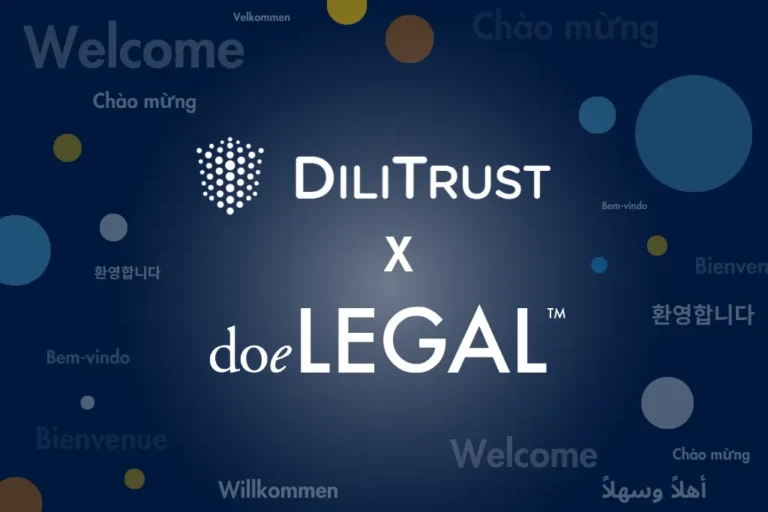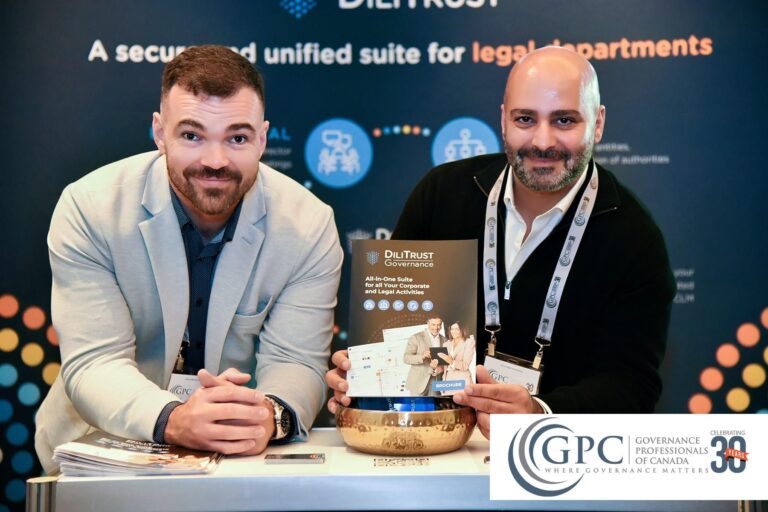Welcome to this LegalTalk!
(What is a LegalTalk? Find out more at the end of this article)
Today’s protagonist is Jonathan Marsh, President of ECLA Executive Board and International General Counsel of TotalEnergies.

INTRODUCTION
Jonathan currently serves as the President of the European Company Lawyers Association. With over 35 years of experience, his career has spanned roles that include International General Counsel, particularly in the energy sector, specializing in the Oil, Gas and Renewables field. Before this, he spent nearly 15 years leading legal teams, in areas such as mergers & acquisitions, budget financing, and capital markets. His career also includes eight years at a Wall Street firm, where he focused on similar areas of mergers, acquisitions, and financial transactions, for various companies. In essence, Jonathan’s extensive career has spanned both external counsel and in-house general counsel roles, making him a seasoned professional in the legal and corporate domains.
THE INTERVIEW
Can you tell us about ECLA?
JM: ECLA, the European Company Lawyers Association, serves as an overarching non-profit organization that unites national associations from various European countries. At present, we boast 22 member associations, effectively representing a collective of over 65,000 in-house counsels across Europe.
Our primary objective is to provide these national association members with exclusive access to a range of benefits. This includes participation in general counsel roundtables, attendance at conferences, access to legal training, and complimentary publications crafted and tailored specifically to their needs. Additionally, we’ve established a platform that enables effective lobbying at a European level, with key policymaking bodies like the European Union, and various legal entities within European jurisdictions. This platform has garnered recognition and is instrumental in advocating for in-house counsel and advancing the legal profession.
One of our significant initiatives is the pursuit of legal privilege for in-house counsel throughout Europe. While more than half of the OECD jurisdictions already offer legal confidentiality for in-house counsel, we aim to standardize this privilege across Europe. The goal is to create a level- playing field for European in-house counsel, allowing them to compete on par with the UK, the United States, and other larger jurisdictions where such privileges are taken for granted.
This year, ECLA proudly celebrates its 40th anniversary since its establishment in 1983. To commemorate this milestone, we will host a major conference in Frankfurt on September 18th and 19th. We are extending invitations to leading general counsel from across Europe. This event is designed to cater to the needs of general counsel and thought leaders within the in-house legal profession. During the conference, we will explore the latest developments in technology, knowledge, and strategies, to adapt to the evolving landscape of the legal profession for corporate lawyers.
We are fortunate to have DiliTrust as a partner supporting this event, and we are delighted to have you lead a roundtable discussion as part of our conference program.
Nearly 50% of legal departments have planned their own multi-year technology strategy or roadmap” says Deloitte 2023 Legal Ops Survey. It seems like the legal industry is finally becoming aware of the value of specialized technology. How have you observed the adoption of legal technology contributing to the efficiency of legal departments and the enhancement of process management?
JM: This newfound awareness of the value of specialized legal technology is pivotal, especially in the current decade spanning from 2020 to 2030. Legal tech is poised to play a pivotal role in enhancing the efficiency of in-house legal departments and refining their operational processes. In fact, I foresee a substantial increase in budgets allocated to legal tech over the next ten years.
The realm of corporate legal and compliance is currently witnessing a wave of innovation, and this innovation is making a tangible impact on both efficiency and compliance. Speaking from personal experience, we developed a tool that facilitates access to a unified platform for legal and business professionals. This platform is designed to be accessible to all stakeholders, not just the legal team, enabling them to access recommendations, tools, and processes when dealing with identified compliance or legal risks. Such an approach allows us to standardize responses, reduce response time, and minimize human error when dealing with evolving factual circumstances. Ultimately, the aim is to enable companies to adopt a more systematic and uniform approach to similar legal risks, embracing technology as a trusted ally.
Certain areas, like document management and digitalization of contracts, represent low-hanging fruit for enhancing the efficiency of in-house legal departments. Admittedly, I belong to the older generation, and I’ve harboured some resistance to automation, often thinking that my extensive experience suffices without computer assistance. However, the onset of the COVID-19 crisis forced us all to adapt quickly. We found ourselves conducting mergers and acquisitions, corporate financing, complex litigation, regulatory request responses, and corporate investigations, from the confines of our homes. We were pushed into the digital realm, and we learned that we could accomplish our tasks effectively using digital tools. The question now is whether we are prepared to fully embrace this opportunity, and to continue progressing hand in hand with technology.
Additionally, we must remain mindful of corporate strategy, and how companies are evolving. Collaboration between in-house counsel and service providers presents an opportunity to develop tools that can significantly advance corporate legal departments. It’s a matter of leveraging technology to propel us forward, in tandem with the changing landscape of business and legal operations.
The evolving role of General Counsels is becoming increasingly evident. It has transformed over the last few years from a purely advisory figure to a strategic partner for the company’s management in several ways. Based on your experience, what skills or abilities will be most valued in the General Counsel role within the next few years?
JM: Based on my experience, several skills and abilities will be highly valued in the General Counsel role in the coming years. First and foremost, it’s crucial to recognize that we are navigating a period of significant legal, regulatory, societal, and geopolitical uncertainty. Events such as the pandemic, rising protectionism, inflation, supply chain disruptions, and conflicts, like the war in Ukraine, underscore the need for adaptability and agility.
In addition to these external factors, the modern perspectives of the younger generation are shaping the General Counsel’s responsibilities. Today’s General Counsel must address social issues, such as diversity and inclusion, and work towards creating an inclusive and supportive environment, for not only legal teams, but for all members of the organization.
Furthermore, the pressing concerns of climate change are altering the way legal services are performed. Factors like carbon emissions and their impact on the environment are becoming critical considerations. General Counsels must weigh the environmental impact of decisions, including travel-related emissions, and assess the company’s role in local communities. This represents a significant shift from purely profit-driven decision-making.
Legal departments are increasingly involved in these socio-economic issues, making it imperative for General Counsels to take them into account. Managing teams remotely, conducting engaging team meetings, and fostering a sense of collective interest in the legal department’s progress, are also essential skills in this evolving landscape.
So, what does it take to be a top General Counsel today? Here are some key attributes:
- Strong judgment: General Counsels must possess the ability to handle complex matters, which often involve multiple legal issues across various areas. While they may not be experts in every field, they should identify issues across multiple legal domains, and apply their legal judgment strategically to advise business leaders.
- Forward-thinking: Anticipating legal risks on the horizon is crucial. A top General Counsel should possess forward-thinking abilities to navigate challenges proactively.
- Vision and a curious mind: An open and curious mindset is invaluable. A visionary outlook allows General Counsels to adapt to changing circumstances and seize opportunities.
- Leadership skills: Effective leadership is essential for uniting and motivating legal teams toward common goals.
- Technological proficiency: Comfort with technology is no longer optional. Embracing and integrating technology into legal operations is key to providing efficient legal services.
In essence, the General Counsel of the future will need to not only be legally astute, but also adaptable, socially conscious, environmentally aware, and tech-savvy, all while maintaining strong leadership qualities.
How do you see companies evolving in the coming years with the legal function as a booster?
JM: The evolution of companies in the coming years will be closely intertwined with the role of Legal as a catalyst for change. As we’ve previously discussed, the business landscape is undergoing rapid and dynamic transformations. Companies are compelled to adapt to this changing environment, and the legal department must evolve alongside them. The complexity of the regulatory environment, combined with geopolitical challenges, supply chain disruptions, and other factors, is placing immense pressure on businesses.
This pressure extends to cost management, with a focus on cost containment and efficiency. Traditional approaches, such as extensive business trips, are being re-evaluated. Moreover, the conventional practice of hiring additional staff to cope with increased workloads is no longer a viable solution. Instead, companies must prioritize efficiency and process optimization.
Standardization and automation are key components of this adaptation process. Embracing standardized and automated processes allows businesses to achieve an efficient 80% solution, rather than aiming for 100% perfection, as the latter often comes at an exorbitant cost. Companies don’t operate on the premise of 100% legal risk avoidance. They need proactive legal advice that takes calculated risks into account.
General Counsels are now expected to justify their legal advice and leverage tools to support decision-making. Working with leaner legal teams presents challenges, but it also necessitates cost-effectiveness and agility. Additionally, General Counsels are tasked with addressing a broader spectrum of issues, including compliance, governance, regulatory matters, and adapting to new regulations. Embracing the technological revolution is paramount in meeting these challenges head-on.
In the realm of contract management, there’s an opportunity for improvement. Centralizing contract-related information, from negotiation to termination, can prevent disruptions caused by personnel changes. It ensures contract history remains accessible even when team members retire or switch departments.
The shift towards remote working, necessitated by events like the pandemic, requires proper management to ensure employee satisfaction. This involves accommodating modified hours and flexible office arrangements.
In summary, the future demands a more reactive, technologically adept, and cost-effective legal structure. Legal departments must align themselves with these ever-changing business needs, contributing not only to risk mitigation, but also to the overall adaptability and success of the company in an increasingly complex environment.
Can you mention three things that you wish for lawyers for 2023/24?
JM: For lawyers in 2023/24, considering the challenging environment we’ve discussed, I would emphasize these three key points:
- Automate your processes: Embrace automation to enhance efficiency, and to reduce the risk of human error. Streamline your workflows and procedures to keep up with the rapidly- evolving legal landscape.
- Develop a long-term legal tech plan: Create a comprehensive, long-term strategy for leveraging legal technology. While having a plan is essential, it’s equally crucial to remain agile and adapt to the evolving landscape of legal tech services and products.
- Be attuned to company needs: Pay close attention to the specific needs of your company. Think strategically about how to address these needs incrementally, avoiding the urge to invest in a “Rolls Royce” solution right away. It’s crucial to adapt to the changing work environment and foster a diverse and inclusive atmosphere, where individuals can work comfortably, whether remotely or in the office. This adaptability is essential for motivating and accommodating the preferences of newer generations with different work styles.
What is a LegalTalk?
Introducing ‘LegalTalks’: a dedicated column expertly curated by DiliTrust.
LegalTalks serves as a platform for gathering invaluable insights, candid opinions, and strategic visions from professionals in the legal industry. Through intimate interviews, LegalTalks delivers a fresh and unfiltered perspective on pressing issues, enriching the discourse and offering unique viewpoints on what matters most in the legal world.
LegalTalks is born of the belief in the power of collaboration, the sharing of expertise, and the exchanging of ideas, which are indispensable tools for tackling the dynamic challenges of today’s ever-evolving legal landscape. With a commitment to supporting professionals in their digital transformation journey, DiliTrust’s mission extends beyond providing cutting-edge technological solutions, it encompasses active engagement within the community.
? Read more on this topic:


